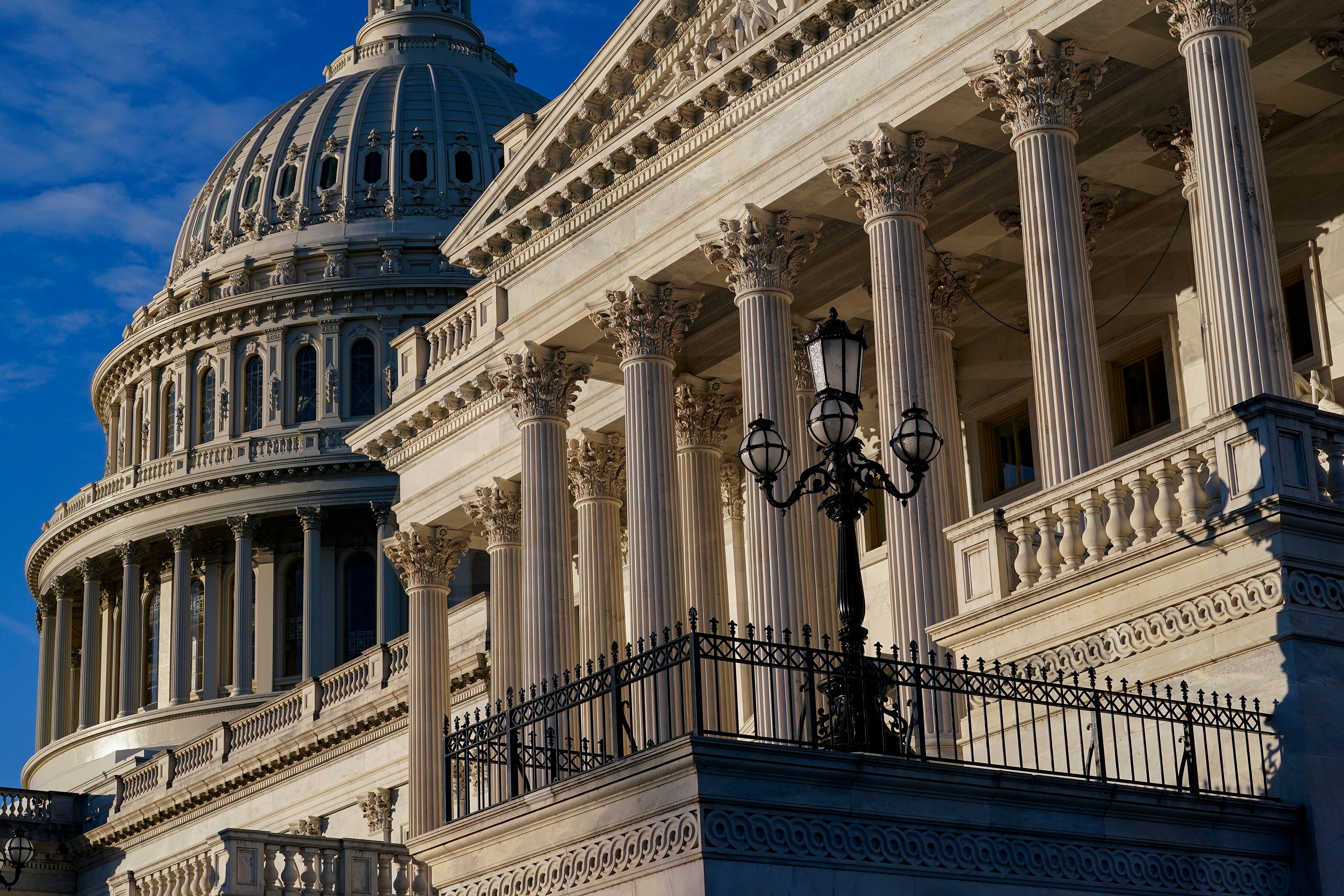Senate aims to reject Biden's vaccine mandate for businesses
The Senate is poised to approve a resolution overturning the Biden administration’s requirement that businesses with 100 or more workers have their employees workers be vaccinated against the coronavirus or submit to weekly testing

The Senate is poised to approve a resolution Wednesday overturning the Biden administration's requirement that businesses with 100 or more workers have their employees be vaccinated against the coronavirus or submit to weekly testing.
The Democratic-led House is unlikely to take it up, which means the mandate would stand, though courts have put it on hold for now. Still, the vote would senators a chance to come out against a policy that they say has sparked fears back home from businesses and from unvaccinated constituents who worry about losing their jobs should the rule go into effect.
“Every so often Washington D.C. does something that lights up the phone lines. This is one of these moments,” said Sen. Steve Daines R-Mont. At home, he said, "this issue is what I hear about. This issue is a top-of-mind issue.”
Lawmakers can invalidate certain federal agency regulations if a joint resolution is approved by both houses of Congress and signed by the president, or if Congress overrides a presidential veto. That's unlikely to happen in this case.
Under the rule, private-sector companies with 100 or more workers must require their employees to be fully vaccinated against COVID-19 or be tested for the virus weekly and wear masks on the job. The Occupational Safety and Health Administration said it would work with companies on compliance but would fine them up to $13,653 for each violation, though enforcement is suspended as the litigation unfolds.
Senate Majority Leader Chuck Schumer D-N.Y., said Americans who have refused to get vaccinated are the biggest impediment to ending the pandemic. He implied that some of the resistance to mandated vaccines is based on politics.
“Some of the anti-vaxxers here in this chamber remind me of what happened 400 years ago when people were clinging to the fact that the sun revolved around the Earth. They just didn’t believe science. Or 500 years ago when they were sure the Earth was flat,” Schumer said.
Schumer said social media has played a role in spreading falsehoods about the vaccine, and “so has the far right.” He urged senators to vote against the resolution, sponsored by Sen. Mike Braun, R-Ind.
“The worst thing we can do is to tie our own hands behind our backs, and let these new variants spread and grow and new ones after omicron and so many others,” Schumer said. “But that is what Republican-pushed, anti-vaccines would do.”
Republicans said they are supportive of the vaccine, but that the mandate amounts to government overreach. They said it may even contribute to people not getting vaccinated.
“I think, actually, the mandate has made it worse in terms of hardening people who don’t want to be told what to do by the government,” said Sen. John Barrasso, R-Wyo.
Sen. Shelley Moore Capito, R-W.Va., said a telephone town hall she recently held with constituents made clear they are concerned about their long-term ability to keep a job if the mandate goes into effect.
“If you look at my state, 40% of my state's workforce stands to lose their job under this mandate," Capito said. “It will be a killer to our economy."
Sen. Joe Manchin, D-W.Va., indicated last week he would join with Republicans in voting to void the vaccine rule, saying in a tweet that he does not support any federal vaccine mandate for private businesses. In an evenly divided Senate, one Democrat joining all Republicans would be enough to pass the resolution.
Deaths in the United States stemming from COVID-19 are running close to 1,600 a day on average. The overall U.S. death toll less than two years into the pandemic could soon reach 800,000.
Bookmark popover
Removed from bookmarks